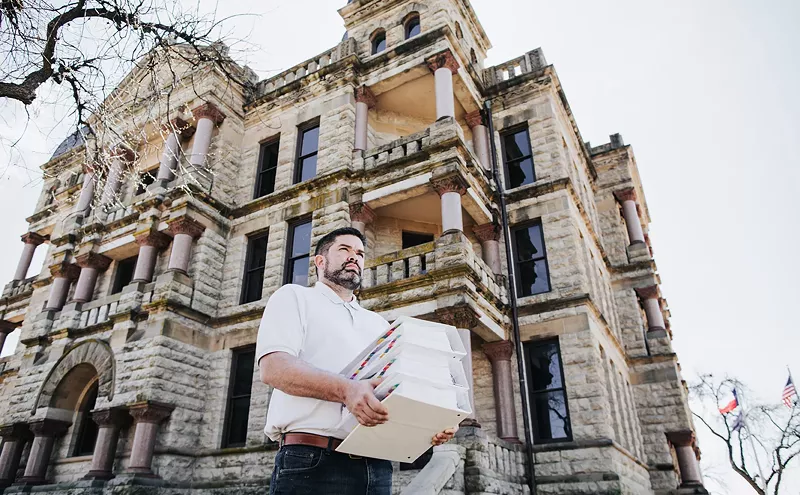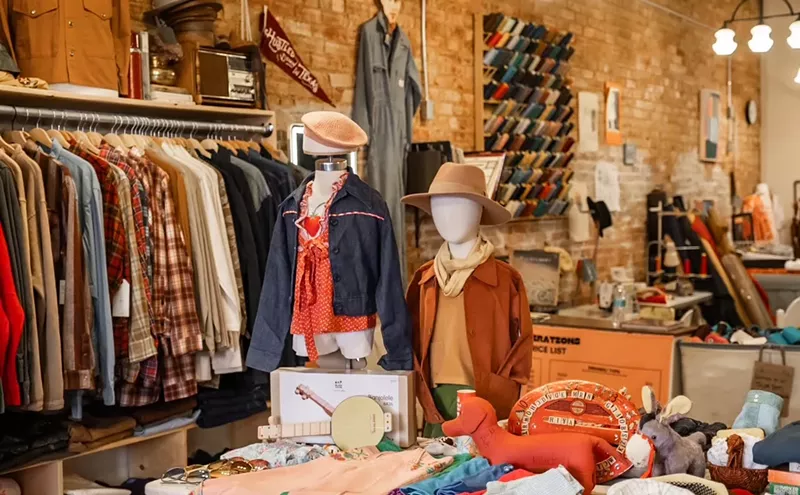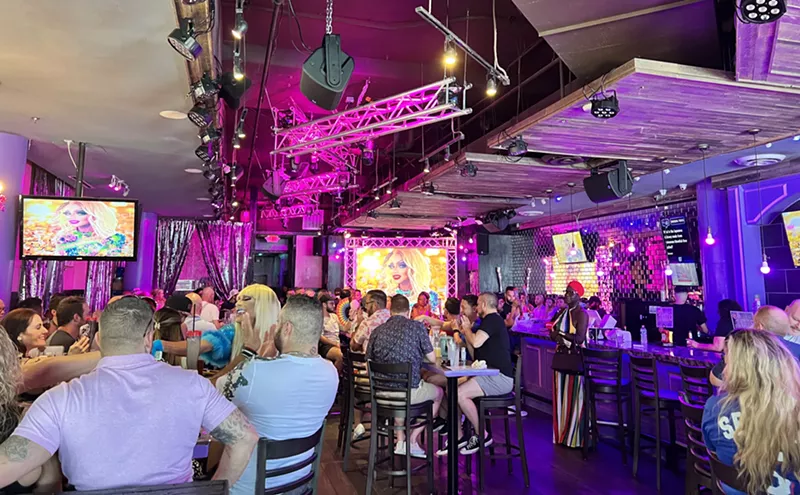What hooked me was her description of her brother Mike's radiation treatments. She talks about Mike listening to Crash Test Dummies and Bach's Unaccompanied Cello Suites while undergoing treatment for lymph cancer. (UCLA has a sound system in the radiation room.) She tells how, to go with his post-chemo baldness, he developed a hip, stark new look; she contributed a Reservoir Dogs T-shirt. And then she says their eyes would meet after his radiation sessions, and they'd both laugh, as if to say, "How weird is this?"
This moment of transcendent sweetness erases the distractions of the odd camera placements and the laughter of the audience watching Sweeney within the movie. It sums up her skewed yet deeply empathic personality and seals the connection between her and the movie's audience.
As the monologue starts (in 1995), Sweeney's mom and dad, from Spokane, invade her Hollywood bungalow during Mike's fatal bout of cancer. The forced closeness threatens to sabotage true intimacy just when the family is most in need of it. Mike has already moved in, and it's even more of an invasion of privacy for him than it is for Sweeney. She is excruciatingly uproarious on the small disturbances of man and woman--her mother's cracked Rubik's Cube mode of discourse (careening without connection from the subjects of cantaloupe to car keys), her father's addiction to National Public Radio (leading to imagined intimacy with Cokie Roberts), their distrust of "big-city ways" like calling noodles "pasta," and how the entire situation reduces her to a frustrated adolescent. Here she is, married and divorced in her mid-30s, at last ensconced in a home all her own--and it's taken over by these aliens.
Despite these rifts, this piece is all about communion--not the sacrament, but the sort that Webster's defines as "intimate fellowship or rapport." Of course, the two are related. Sweeney's Catholic upbringing is never far from center-screen, and her comic attitude toward it is different from the good-riddance hilarity of, say, Christopher Durang's play Sister Mary Ignatius Explains It All For You. Sweeney doesn't buy the dogma; in one funny anecdote, she fleshes out how much she loves to argue with the Pope. At the same time, she reveres her Catholic teachers--the priest who suggested that heaven can be an instant of total awareness, the nun who made her memorize the Emerson quote "Give me health and a day, and I will make the pomp of emperors ridiculous." Sweeney wants a secular state of grace.
With Mike, she shares a communion of amusement. It enables them to get through the dehumanizing practices of modern medicine. At one point, his doctor suggests putting a shunt into his forehead, so the chemo can flow right into his cranium. The medic is so abashed at Mike's disbelief that he says, "My patients who have the shunts, well, they, they love them." He persuades Mike to get one and provides him with a great running joke. "I'm not doing too well, Doc," Mike will say, "but I'll tell you one thing, I love my shunt."
And her brother's irony seems to sharpen Sweeney's gentler wit. To complete the show's (and her life's) one-two punch, Sweeney, in the midst of this ordeal, contracts a rare form of cervical cancer. Naturally, she and Mike refer to her home as the International House of Cancer. By the time Sweeney is ready for her operation (it comes three days after her brother's death), she's had enough of her parents' company--she wants to have her hysterectomy alone. But that doesn't mean she's rejected them. They, too, have shared a communion, one of family feeling and service. And you experience that partly through Sweeney's becomingly modest performance. As an actor, she doesn't strain to transform herself completely into these different people. Instead, she shows how her mom's uncensored, haphazard directness, her dad's stubbornness and intellectual curiosity, and her brother Mike's sardonic flair funnel into her own pliant, surprisingly strong character. (She survived her own cancer crisis.)
Her memory of all of them straggling into the living room to watch the film noir In a Lonely Place on TV at three in the morning--and of her non-demonstrative brother allowing her mother to hold his hand--is the stuff of tragicomedy. Like the film as a whole, it's enough to warm, and perhaps heal, a breaking heart.
-- By Michael Sragow
God Said, 'Ha!' Directed and written by and starring Julia Sweeney. Opens Friday.








